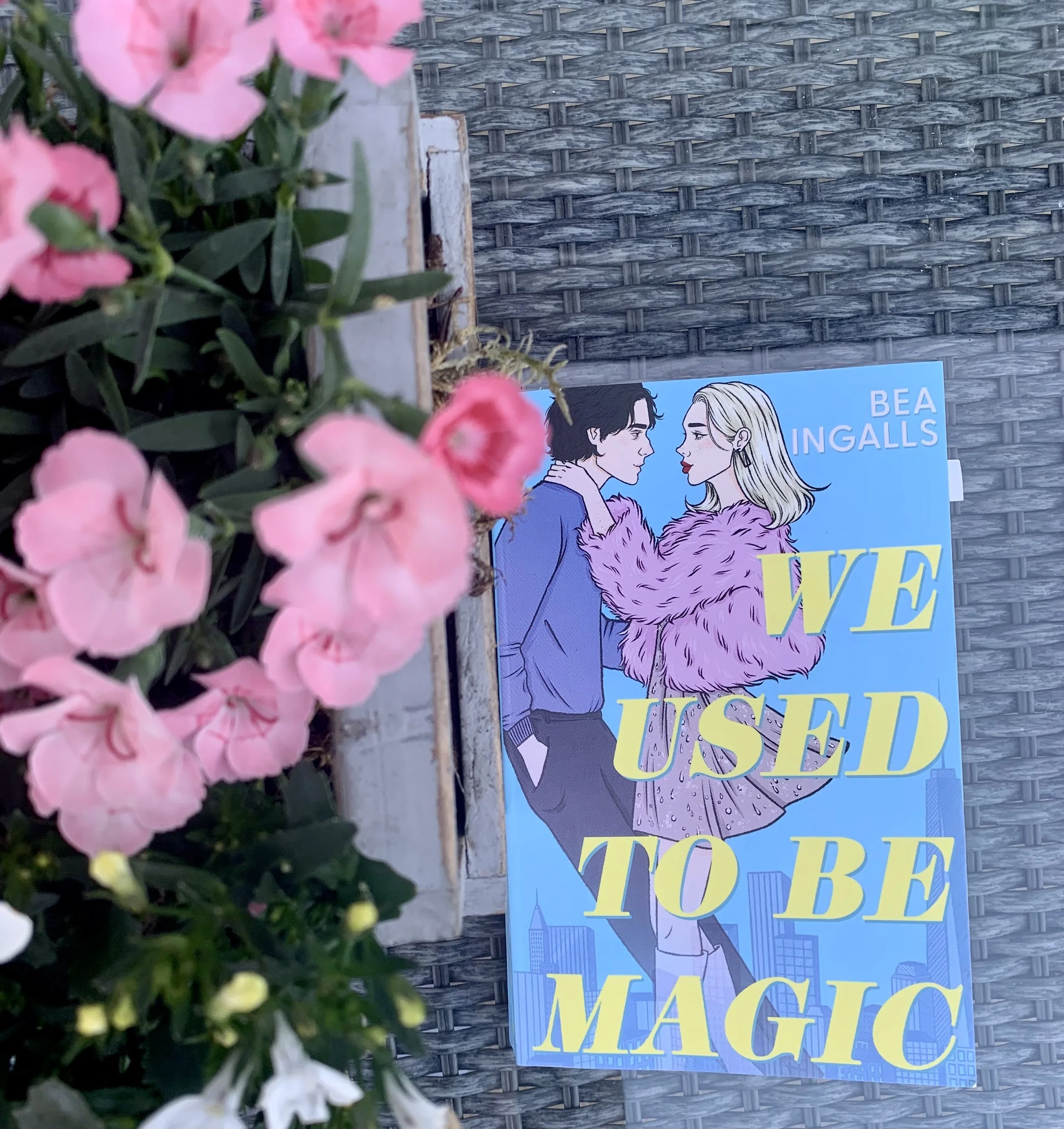We Used to be Magic - Bea Ingalls
An entirely new world awaits Audrey who’s starting her career in modelling; new to the Big Apple, fresh from England. As she steers her way through this new beginning, experiencing the good and bad parts of the modelling world, she meets Ezra - a strapping young man trying to avoid his past. They’ve each got their issues, issues that try tearing them apart, but each time conflict erupts the universe attempts to pull them back together again.
It’s a simple love story full of emotional twists and turns, one that’ll have you questioning whether it’s a happy-ever-after or a story ending in sadness, tragedy, or disappointment. Will their darkest secrets hold them back from what could be considered fate? Or will fate be strong enough to keep them together?
If you’re as intrigued as I was, you’ll have to read it to find out. The 3.5 star story is totally worth it, but it’s not without its flaws.
Young adult romance novels aren’t my first choice of reading book. Personally I find them to be a little too cliche which, if you’ve read enough of them, it can feel repetitive, making it all a little boring. Of course, Ingalls’ story is original, unique, and well curated, but it’s been constructed around cliche ideas that I’ve definitely seen before. In other words, it’s quite banal. Certain scenes had me thinking: ‘this just wouldn’t happen in real life’ and ‘oh my gosh this is so cliche’.
They’re nice ideas, don’t get me wrong; it’s all very romantic, sweet, and quite cheesy at times but it doesn’t entertain me when things don’t feel uncommon and unexpected. I understand why people have a love for these stories though, it’s what people fantasise about for themselves. It’s a heartwarming day dream to have, but when it’s in a novel, I want it to feel realistic to life, and though most of this book did have realistic qualities, a lot of the concepts didn’t have me believing it all the time.
In fact, I wanted to roll my eyes at a few of the chapters in this book. They were simply written because ‘it’s what the reader wants’, like the scene where they kiss in the rain. Obviously it’s a super romantic idea; so much so movies like The Notebook, Dear John, Breakfast at Tiffany’s, Spiderman (2002), and Little Women have it as part of their stories. It’s a common clip that gets the audience emotional every time. But I’m sorry, it just doesn’t do it for me in books like Bea Ingalls’ - I prefer it when writers think outside the box, it’s too easy otherwise.
Not to mention the fact that I never once felt as though I was in New York while I was reading this and that was so disappointing. I don’t think I’ve experienced anything like it before. I felt that I was just a character floating in space. I might have been in an apartment building at times, but the outside was dark and placeless. The New York vibe wasn’t there at all, and to make matters worse, Ingalls had to bring in American stereotypes to reference the fact that they were clearly in America. One of those being when Ezra had to point out that Americans put butter on their popcorn. Sure, that’s a true fact, a lot of Brits enjoy that combination too, but she had to point it out which gave me the impression that even she felt she wasn’t portraying the location well enough. Especially as subtle lines like that cropped up a few times throughout the story. If I’m writing something, I shouldn’t need to bring up cultural statements like that to remind the reader of where I am, I should already get that vibe from description of the setting that’s interwoven throughout the story. Don’t specify that ‘yes’ this happens in America, just roll with it and the reader should get the gist. If they don’t, you haven’t done it right.
Despite all this, I thought it was a lovely story. No book is perfect, unless you deem it be of course, but I think every writer deserves praise for what they’ve accomplished. It brought up some very moving points, highlighting problems within the modelling world and male dominance, as well as alcoholism and the sheer emotions that heartbreak can conjure.
The characters, I felt, didn’t have many flaws apart from the obvious note to alcoholism and vulnerability on Audrey’s end, otherwise in every other sense I felt that they were too perfect. They made decisions that never once affected how I felt as the reader, and I think that’s why I didn’t connect with the characters on a very deep level. However, everyone is different, this could be the perfect book for you - especially if Rom-Coms are your passion. But if they’re not, then you wouldn’t be missing out too gravelly; though it would be a shame if you missed Audrey’s and Ezra’s whirlwind of a journey through their next chapter in life.
By your copy of the book here:
